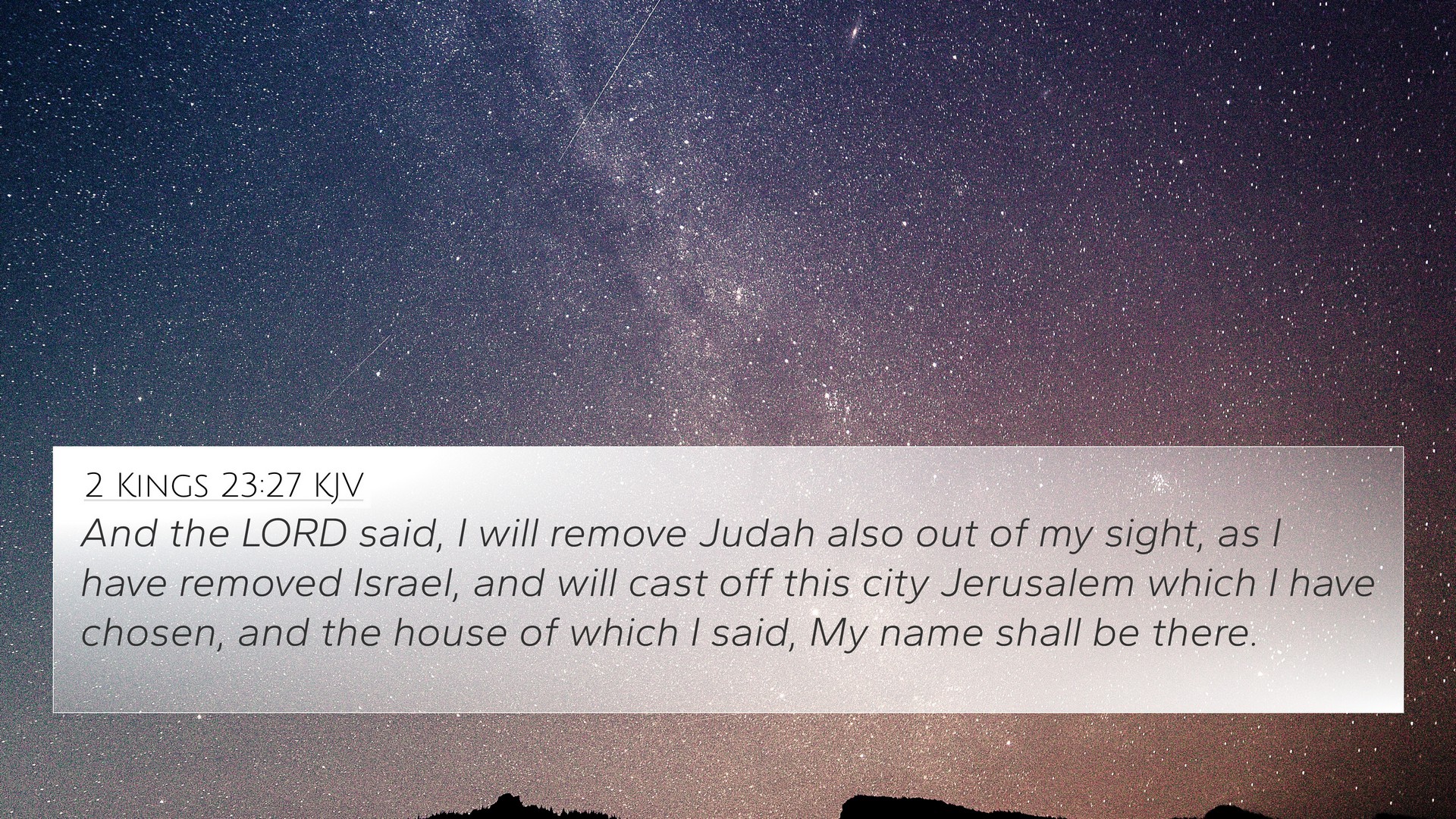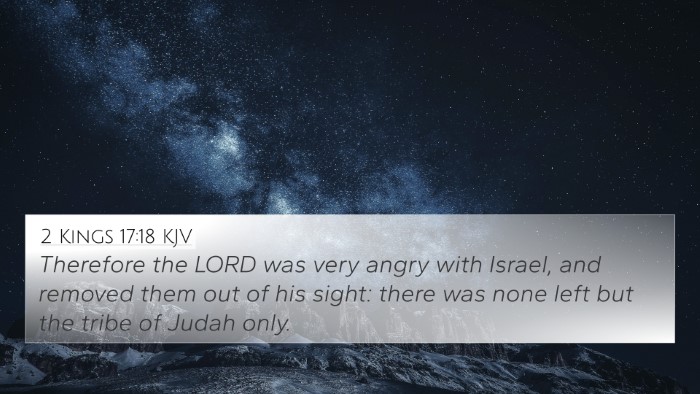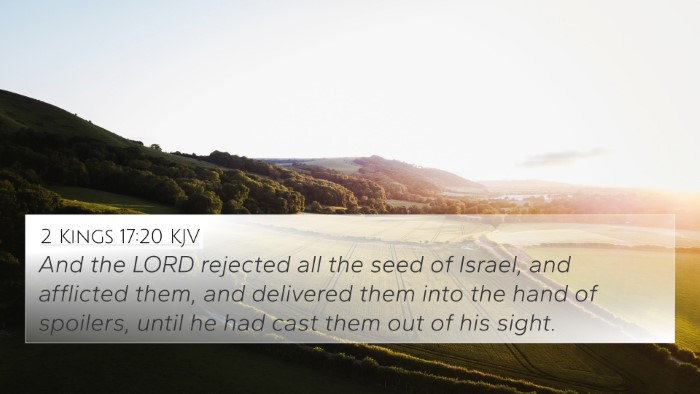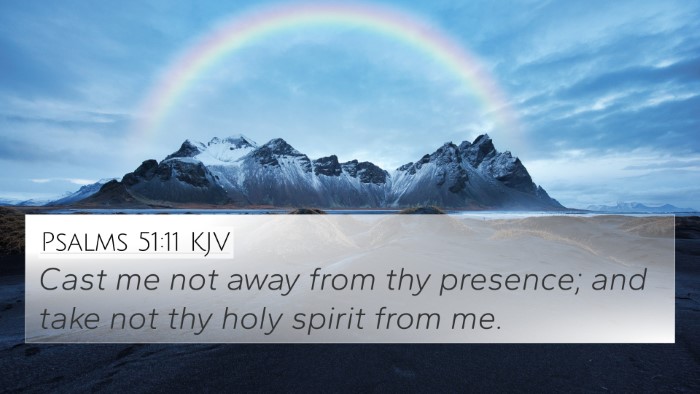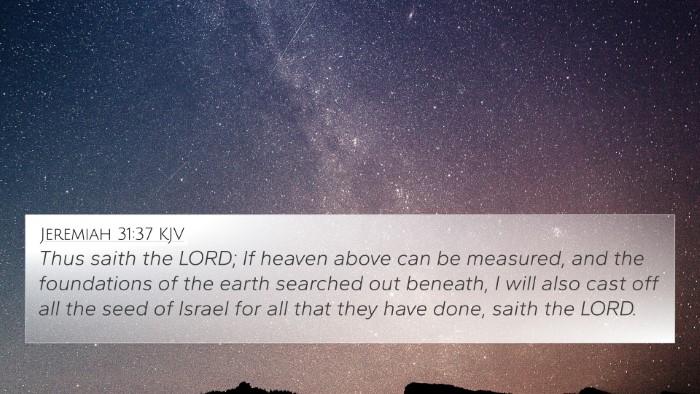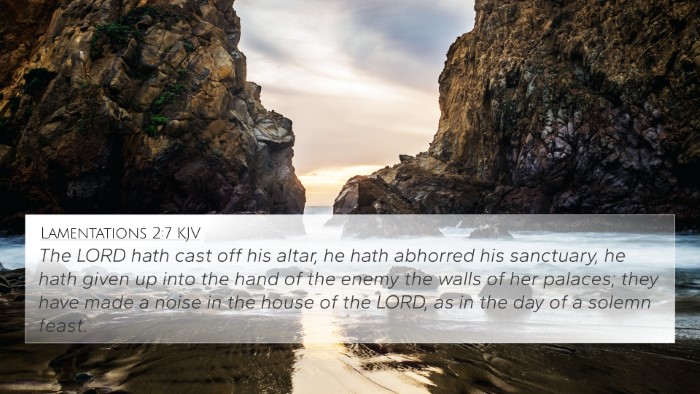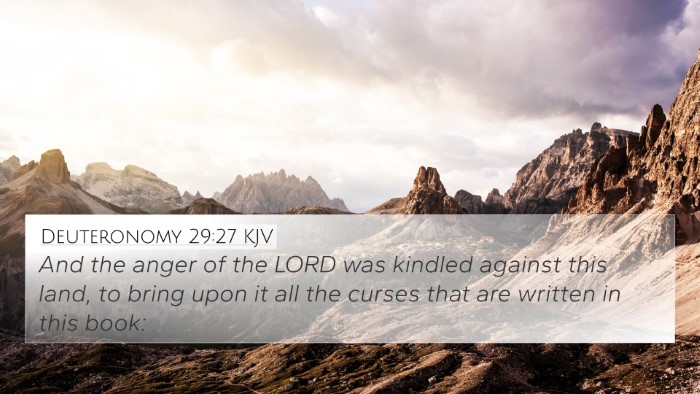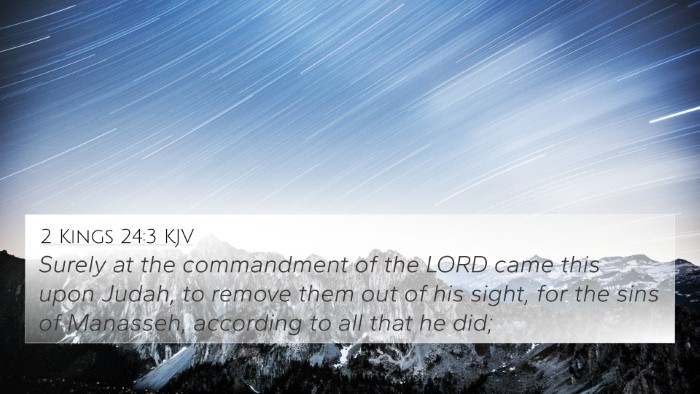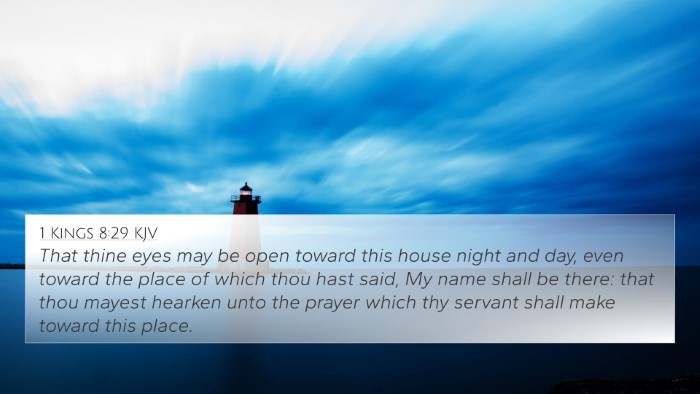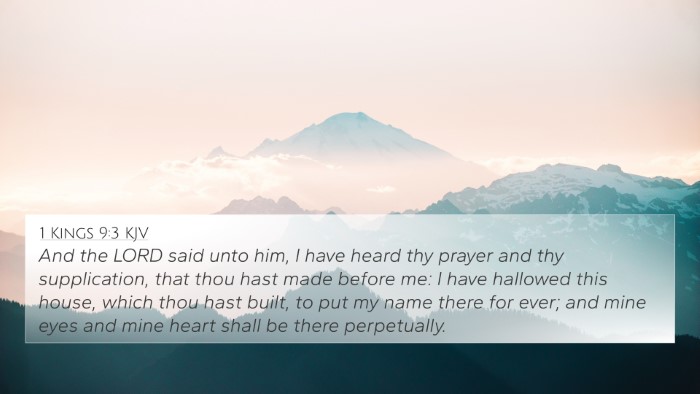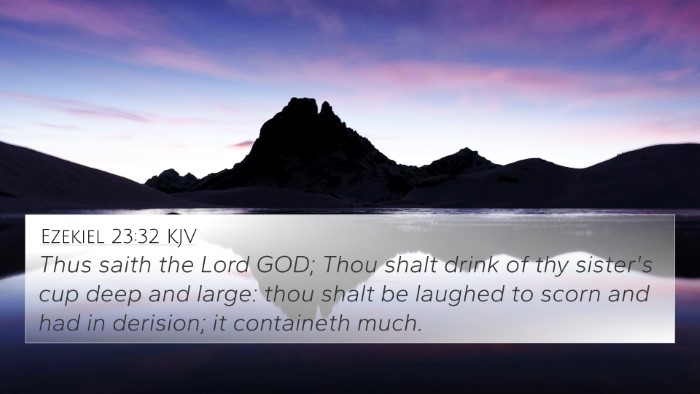Understanding 2 Kings 23:27
2 Kings 23:27 states, “And the LORD said, I will remove Judah also out of my sight, as I have removed Israel, and will cast off this city Jerusalem, which I have chosen, and the house of which I said, My name shall be there.” This verse serves as a profound warning and reflection on God's judgment towards His people.
Verse Meaning and Interpretation
This verse highlights a pivotal moment in Israel’s history, shedding light on the consequences of disobedience and idolatry. According to public domain commentaries:
- Matthew Henry's Commentary: Henry emphasizes that God's decision to remove Judah from His sight parallels His actions towards Israel. This signifies not just physical exile but also spiritual separation from God, which is the ultimate punishment for the people’s unfaithfulness.
- Albert Barnes' Notes: Barnes draws attention to the significance of Jerusalem and the Temple as God’s chosen dwelling place. By casting off Jerusalem, God is indicating the severity of His displeasure with the nation’s disregard for His covenant.
- Adam Clarke’s Commentary: Clarke notes the historical context of this decree, contextualizing it within the broader narrative of Israel’s repeated failures. He stresses the importance of God's warning as a final call to repentance before judgment is enacted.
Theological Implications
The message contained in this verse illustrates several key theological principles:
- Divine Judgment: This verse serves as a reminder of the reality of divine judgment based on national sins and individual disobedience.
- God’s Sovereignty: The removal of Judah shows that God is not only the protector but also the judge who enacts consequences for rebellion.
- The Insufficiency of Ritualism: This event underscores the ineffectiveness of mere ritual observance without genuine faith and loyalty to God.
Cross-References to 2 Kings 23:27
To gain a fuller understanding of 2 Kings 23:27, we can look to several cross-referenced Bible verses that connect both thematically and contextually:
- Jeremiah 7:15: “And I will cast you out of my sight, as I have cast out all your brethren, even the whole seed of Ephraim.” This verse parallels the theme of rejection for disobedience.
- Ezekiel 10:18: “Then the glory of the LORD departed from off the threshold of the house, and stood over the cherubims.” This illustrates the departure of God's presence from His chosen city due to sin.
- Lamentations 3:8: “Also when I cry and shout, he shutteth out my prayer.” This reflects the spiritual implications of being rejected by God.
- 2 Chronicles 36:16: “But they mocked the messengers of God, and despised his words, and misused his prophets, until the wrath of the LORD arose against his people, till there was no remedy.” This serves as a reminder of Israel's hard-heartedness leading to judgment.
- Isaiah 50:1: “Thus saith the LORD, Where is the bill of your mother's divorcement, whom I have put away? Or which of my creditors is it to whom I have sold you? Behold, for your iniquities have ye sold yourselves.” This deals with the theme of separation due to iniquity.
- Hosea 1:9: “Then said God, Call his name Lo-ammi: for ye are not my people, and I will not be your God.” This signifies a relationship severed due to persistent sin.
- Matthew 23:37: “O Jerusalem, Jerusalem, thou that killest the prophets, and stonest them which are sent unto thee, how often would I have gathered thy children together, even as a hen gathereth her chickens under her wings, and ye would not!” This New Testament reference echoes the theme of divine lament over a rebellious city.
- Romans 11:22: “Behold therefore the goodness and severity of God: on them which fell, severity; but toward thee, goodness, if thou continue in his goodness: otherwise thou also shalt be cut off.” This establishes a New Testament theology of grace and judgment for those who stray.
Conclusion
In conclusion, 2 Kings 23:27 serves as a sobering reminder of the consequences of turning away from God, as reiterated through various public domain commentaries. The cross-references enrich our understanding and showcase the connections between scripture, emphasizing that the themes of judgment, divine presence, and the call to faithfulness resonate throughout the Bible.
Tools for Further Study
For those seeking to deepen their understanding of cross-references, utilizing tools such as:
- Bible concordances
- Bible cross-reference guides
- Cross-referencing Bible study methods
…can significantly enhance your study. Cross-referencing not only supports interpretation but also reveals the rich interconnectedness of Biblical texts.
